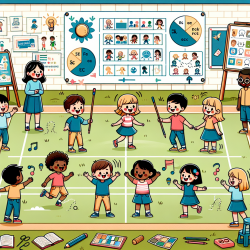Welcome to the World of Undergraduate Field Experiences
As a Special Education Director, you understand the importance of hands-on learning experiences for students. The research article, A resource for understanding and evaluating outcomes of undergraduate field experiences, by Shortlidge et al., offers valuable insights into the world of undergraduate field experiences (UFEs) and how they can be effectively assessed to improve student outcomes.
Why Field Experiences Matter
Field experiences provide students with the opportunity to apply theoretical knowledge in real-world settings. These experiences are crucial in science education, as they allow students to engage with interdisciplinary subjects and diverse environments. However, the challenge lies in assessing the outcomes of these experiences to ensure they are beneficial for students.
Key Takeaways from the Research
The research provides a comprehensive guide for practitioners to assess UFEs systematically. Here are some key steps outlined in the guide:
- Identify Intended Outcomes: Clearly define what you want students to gain from the experience. This could range from technical skills to personal growth.
- Consider Contextual Factors: Understand the unique setting of each field experience and how it may influence outcomes.
- Determine an Assessment Approach: Choose tools and methods that align with your intended outcomes. The research provides a table of common learning outcomes with corresponding assessment tools.
- Use Information to Inform Next Steps: Analyze the data collected to make informed decisions about future field experiences.
Implementing the Research in Practice
As a practitioner, you can use these insights to improve your approach to field experiences. Consider the following strategies:
- Develop a Structured Plan: Create a detailed plan that outlines the objectives, activities, and assessment methods for each field experience.
- Engage with Stakeholders: Involve students, parents, and other educators in the planning process to ensure the experience is inclusive and reflective of diverse needs.
- Continuous Improvement: Use the assessment data to refine and enhance future field experiences, ensuring they remain relevant and effective.
Encouraging Further Research
While the research provides a solid foundation, there is always room for further exploration. Consider conducting your own studies or collaborating with academic institutions to deepen your understanding of field experiences and their impact on student learning.
To read the original research paper, please follow this link: A resource for understanding and evaluating outcomes of undergraduate field experiences.










